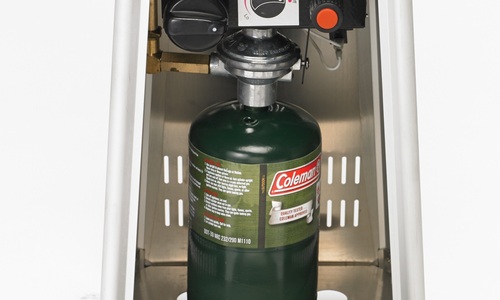Gas vs. Electric Heating: Which One Is Right for You?
Read time: 5 minutes |

When it comes to keeping your home warm, the choice between gas and electric heating can feel overwhelming. Each system has its own set of pros and cons, and the decision often depends on your specific needs and circumstances. Let's dive into the details to help you make an informed choice.
Heating Systems Explained
Electric heaters come in two main types:
Radiant heaters - These heaters contain a heating element inside a glass envelope that produces heat through infrared radiation. A reflector directs the heat away from the heater, and the radiant heat travels through the air until it reaches an object or body. Radiant heaters, also known as infrared heaters, are ideal for spot heating. Think of them as cozy companions for those chilly winter nights.
Convection heaters – These heaters warm the air around them through convection. As the air heats up, it rises, and cooler air moves in to take its place, creating a continuous cycle of warmth. Convection heaters provide steady airflow and are perfect for enclosed spaces.
Two popular types of convection heaters are ceramic and oil-filled heaters.
Types of Gas Heaters
Gas heating options include:
Flued heaters – These are permanent installations that require professional setup at the correct height to ensure all emitted gases are properly extracted. It’s like having a built-in fireplace that keeps your home warm and safe.
Non-flued heaters – Also called vent-free or flueless heaters, these can be used in a room as long as there’s adequate ventilation. They offer flexibility but come with certain safety considerations.
Installation
A gas heater or furnace requires ventilation to remove the emissions from burning gases. This typically involves installing air ducts and vents throughout the house, which can be a significant project requiring professional help. On the other hand, electric heaters are portable and don’t need extensive installation. Wall-mounted electric heaters might need some setup, but the process is simpler and often doesn’t require outside assistance.
Cost
Installing a gas heater tends to be more expensive than an electric heater because it involves setting up a centralized furnace with flue outlets. Electric heaters, by comparison, are more budget-friendly and straightforward to install.
Operating Cost
Gas heaters tend to generate more heat than electric ones, making them more efficient for larger spaces. Since gas is usually cheaper than electricity, gas heaters often have lower operational costs. Electric space heaters are most economical when used to heat smaller areas at lower temperature settings.
Safety Hazards
Infrared heaters heat objects directly and should be placed in areas where ignition won’t pose a risk. Most gas heaters need to be installed in well-ventilated areas, and they should always be turned off before going to sleep.
Pro tip: Heating systems can dry out the air, which might irritate conditions like dry skin or eczema. Using a humidifier can help maintain a comfortable humidity level in your home.
Popularity
The preference for gas versus electric heating largely depends on where you live. In many parts of the Northeast, gas heating dominates due to its efficiency in colder climates. In regions with milder winters, electric heating might be preferred as it requires less energy to maintain warmth.
Gas vs. Electric Heaters
If you’re considering investing in a personal heating system, radiant heaters are a strong contender. Gas heaters work more gradually but excel at providing sustained warmth over longer periods and across larger areas. Radiant heaters are ideal for personal or room use, as they deliver a focused beam of heat that warms people and objects quickly.
While both convection and radiant heating have their drawbacks, they tend to be more effective when used in personal space heaters rather than large-scale household systems. Convection furnaces and radiant heating panels cover big areas but come with a higher price tag. Space heaters consume less energy to heat smaller spaces, saving you money in the long run.
Suitability
Gas heating is better suited for larger households because it heats spaces faster than electric heaters. If a chimney or another outlet isn’t available for venting, electric heating may be your only option.
Need more information? Got a question? Reach out to us today, and we’ll be happy to assist you!
Business Direct Drinking Water Equipment
direct drinking water purifier, commercial water dispenser hot cold With Ro System,stainless steel reverse osmosis factory use drinking water dispenser,4 Faucets direct drinking water equipment
Foshan Yajieyuan Technology Co., Ltd , http://www.yjymiclean.com